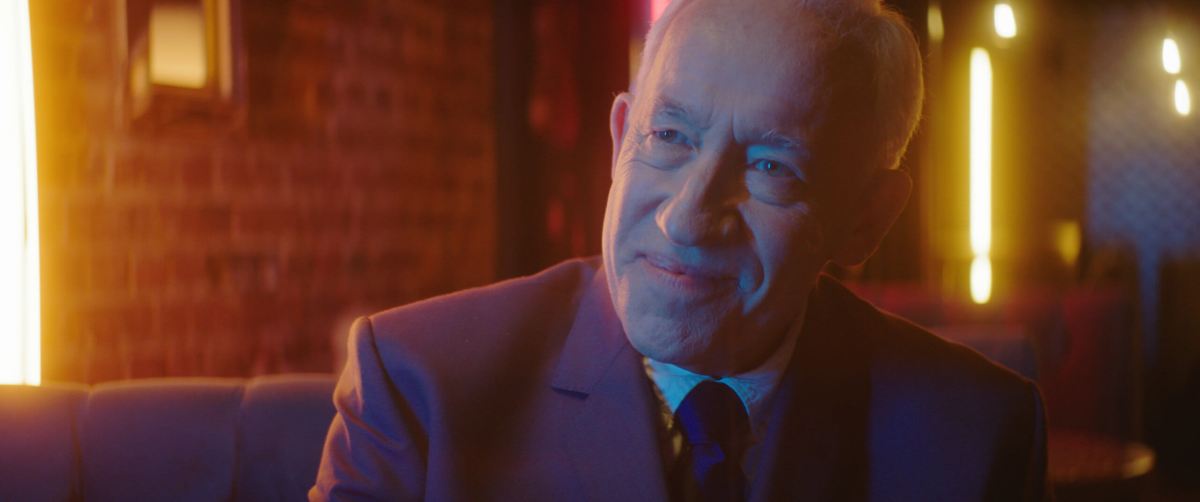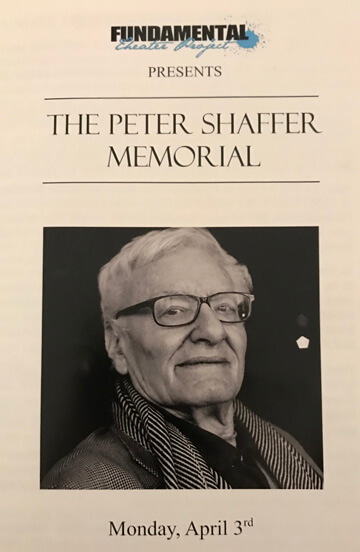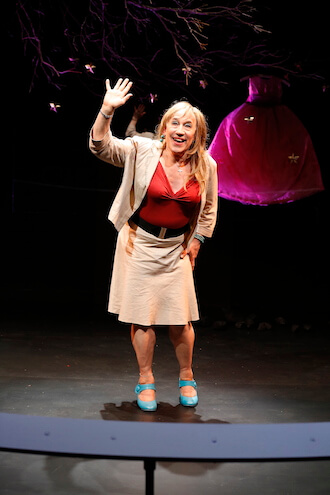In the nifty caper flick, “The Pay Day,” out gay actor Simon Callow plays Gates, a man who hires Jennifer (Kyla Frye) to nip into a corporate office, download a file to a “flashy” drive, and return it to him, tickety-boo. What could be easier? Of course, Jennifer encounters some trouble, namely in the form of George (Sam Benjamin, who wrote the film’s screenplay). He complicates her assignment, which also gets compromised.
Callow relishes playing Gates, a man who enjoys his pomegranate margaritas and can often manipulate things to his advantage. The actor spoke with Gay City News about making “The Pay Day” and his 40-plus year career in front of and behind the camera.
Gates appears to be a fun role for you. You get to camp it up a little bit. What observations do you have about Gates and creating his character?
It was well written. He is playful and naughty and likes to create an aura of sexual ambiguity. That’s all in the script. I pretty much ran with it. I’ve played a number of villains in the past, almost along the same lines as this chap — all controlling intelligences who are namelessly corrupt. It’s never really spelled out. I enjoy playing those characters.
I’ve mostly seen you play gay men and historical figures. Do you think you’ve been typecast?
We all have that problem when you do something successful, like I did with “Four Weddings and a Funeral.” For many years I felt I had been ghettoized into what I call “The life and death of the party” kind of roles. People wanted me to be 10 times larger than life and joyful and ebullient and fat. There are limits to what you can do with that that kind of part unless you do something like Falstaff, where you are dealing with a profound lifeforce figure. We all like to play complex characters. The character in “The Pay Day” is complex — you don’t know why or what he’s like in any other sphere of life other than this particular one the film shows. What interests me almost more than anything else in acting is innocence and benevolence. I’ve not so often had a chance to do that. I did it with “A Room with a View,” for example. I absolutely centered on this idea that this was a good man who is trying to do good. That wonderful scene at the piano, “If only Miss Honeychurch could learn to live the way she played.” I love playing teaching figures. I adore doing teaching scenes.
You go big in some of your roles and dial down others, but what appeals to me about your performance here is how you have an air of mischief or enthusiasm. How do you make Gates likable even though I’m still wary of him.
I’ve known a lot of people like that, so I think of them — people who are enchanting and dangerous. For example, I used to know Lord Snowdon. He was wickedly, dangerously mischievous. You could get in trouble for it. He loved to live life on a very, very dangerous edge while being infinitely courteous and graceful and funny. My suspicion is that Gates was always like that even as a schoolboy. This particular quality is not something you learn, it’s something you have. It’s a very dangerous character, like what Mephistopheles’ Faust said about himself — “I am the negation of a negation.” That’s what Gates is like. There’s no pity or kindness, no warmth. There’s just playful malice [laughs] and of course, anger and avarice. He wants a lot of money.
Have you ever gotten into criminal mischief?
[Laughs]. Alas, no one would trust me. I’m too unreliable. I’d blow it. Have you?
Done anything criminal? No.
Have you done anything you’ve regretted?
Not really. My parents instilled in me a very strong moral compass. I loved Gates’ little speech about pomegranates, and how you never know what you might like. What is something that you have discovered that has surprised you?
One changes as one goes along, and one’s desires and aspirations change. For example, I’ve become quite domestic now. But I wasn’t domestic at all. I regarded home as somewhere to get out of as soon as possible. I’ve had many relationships and lived with people for long periods of time but it’s only now in the house that I live in and the marriage that I’m in that I really think a lot about home and the value of it and miss it. I never used to be homesick. I think it’s because I grew up with mother and we lived in very small confined, claustrophobic places. So, I always wanted to get out. I supposed it’s partly because of age and partly because so much of my work now is connected with writing and to find place where you write most happily is an important discovery. The fact that it’s my marital home it is also very comforting.
What is the appeal of doing roles in films like “The Pay Day?” Is this just a “pay day” for you, or is it more giving back, and an opportunity to help a little film get made?
I read the script and thought this is fun. It was two days’ work and it’s always lovely to work with new people. I liked Sam Bradford (the director) and Sam Benjamin (who wrote and costarred) and Kyla Frye. As it happens, I’m glad I was doing it. In between the two days I was set up to direct a film and it was all systems go and, on that day, I got a message from the producers saying the whole thing collapsed overnight. This is what happens. The [“Pay Day” folks] were wonderfully supportive and kind.
I’m sorry to hear. I just heard that the only feature film you directed, back in 1991, “The Ballad of the Sad Café” will be available from Kino Now December 6. Do you want to try to direct another film?
It was a very unnerving experience. My cast was extraordinary — Rod Steiger, Vanessa Redgrave, Keith Carradine, and Cork Hubbert. That was a quite a handful. But I had terrible trouble with the cinematographer and that was why it was difficult. Many first-time directors can have that issue. Cinematographers can be very autocratic. It’s such an incredibly close bond, the cinematographer and the director. For the length of a shoot, making a movie is like a dual monarchy. To have a negative, fractious actually destructive cinematographer was not good at all. So, I stayed away from it for a long time. Since then, I’ve been very keen to direct but films keep falling through. That’s very much the nature of the business, I’m afraid, but next year I might finally get back into the saddle.
I appreciated that you were an out gay actor at a time where being out was risky for a career. What observations do you have about that?
I was pretty much the first known actor to come out voluntarily as gay, and people warned me it would be terrible, but I never thought it would be. I had complete confidence that I would be fine. I’ve never hidden it at any point in my life. And there are people who think: how is that possible? I was a Catholic boy in a Catholic grammar school I never pretended and never was beaten up or shunned. I didn’t tell my teachers, but my classmates knew. I’m happy I did it, and especially when I wrote about it in “Being an Actor.” I am very glad that it empowered certain people to feel they could come out, but I can’t say I was heroic. I just did it. People said to me, “If you come out, you will never work again,” my response was, rather than lie about my sexuality, I’m resigned to giving up acting. I wasn’t militant. I’m not militant.
Being an actor is about persuading an audience. What are your thoughts on this? Do you lie the truth?
It is the truth while you are doing it. You give yourself over to another principle of being. As I have so often said, acting is thinking the thoughts of another human being. While thinking those thoughts, it is not false. It’s up to other people to judge. That’s the whole point of acting.
“The Pay Day” | Directed by Sam Bradford | On digital November 11 | Distributed by Vertical Entertainment.
































